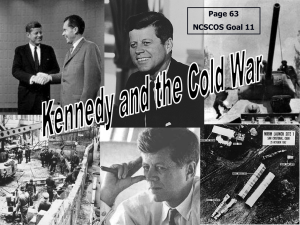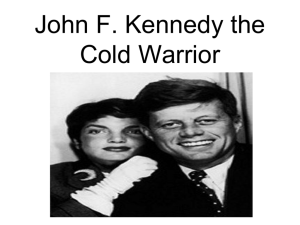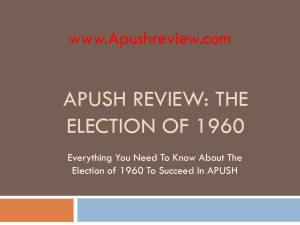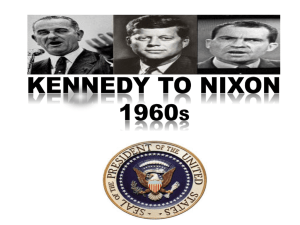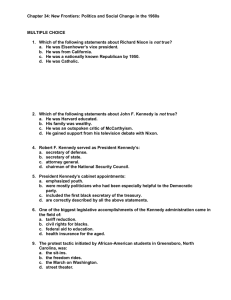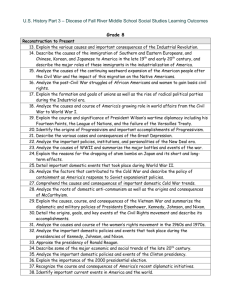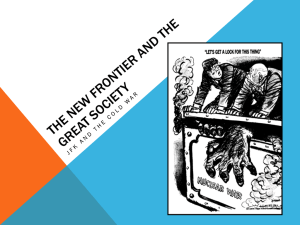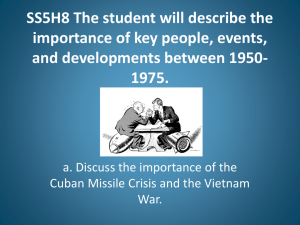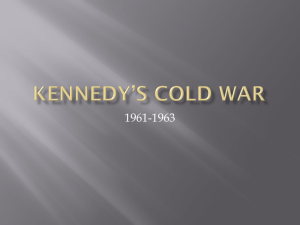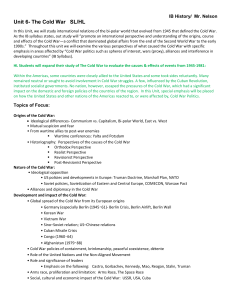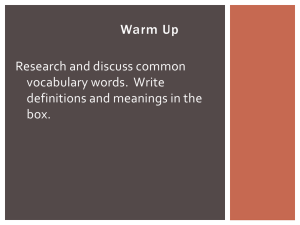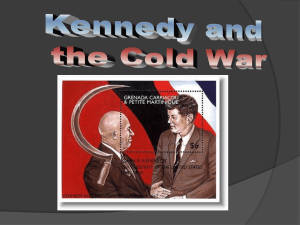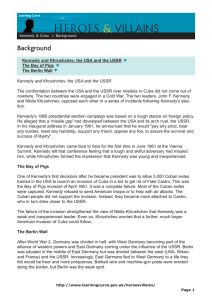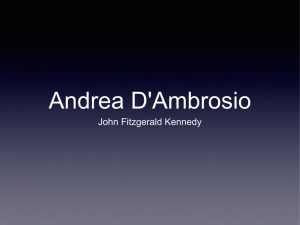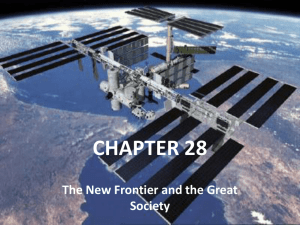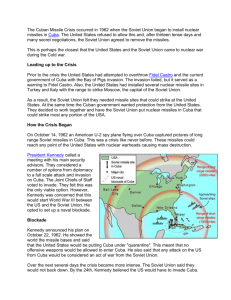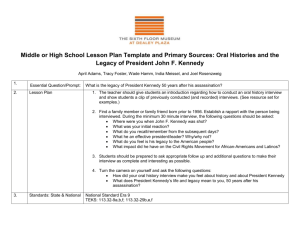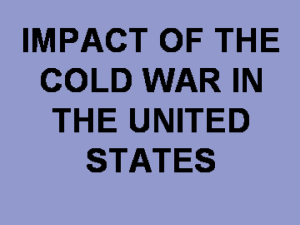USH III Ch 19 Section 1 Notes
advertisement
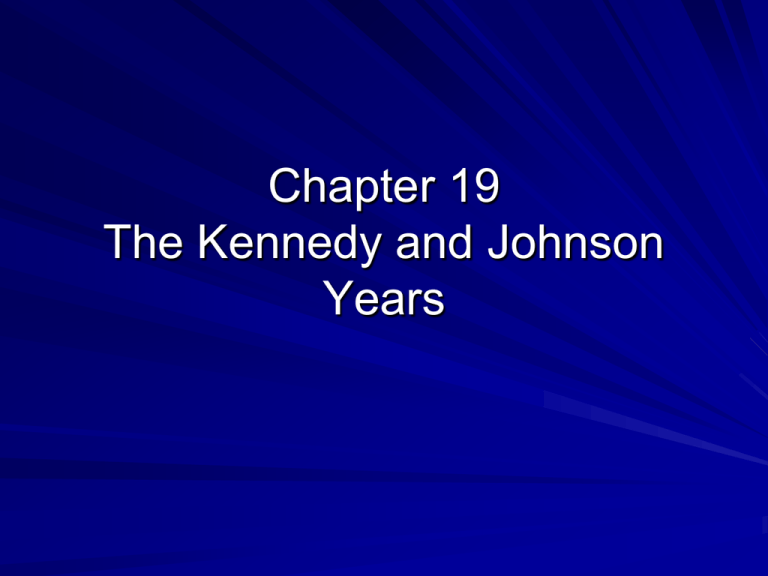
Chapter 19 The Kennedy and Johnson Years Section 1 Kennedy and the Cold War Presidential Election of 1960 Electoral Vote Popular Vote % Electoral Vote % Popular Vote John Kennedy (Democrat) 303 34,227,096 56.4 49.7 Richard Nixon (Rebublican) 219 34,107,646 40.8 49.6 Televised debates First televised debate – – – – Nixon was pale and exhausted Watched by 70 million people Those who listened by radio believed Nixon won Those who watched TV believed Kennedy won Kennedy supported African Americans and the civil rights movement Nixon – Struggling family – Attended Whittier College – Vice President under Eisenhower Kennedy – – – – Wealthy family Family of politicians Attended Harvard Catholic Similarities – – – – Born in the 20th century In the Navy during WWII Congressmen Supported fight against Communism Cold War Fidel CastroCommunist leader of Cuba Cold war- intense economic, political, military, and ideological rivalry between nations that stops short of military conflict Kennedy’s first goal would be to build up the military “missile gap”- Soviet Union had more nuclear missiles than the U.S. “flexible response”prepared the U.S. for war Bay of Pigs – April 17, 1961 – CIA recruited Cuban exiles to overthrow Castro Cuban Missile Crisis – 1962 missiles built in Cuba – Kennedy demanded removal – Blamed Soviet premier, Nikita Khrushchev – Blockade Cuba – Removal of missiles in Cuba and Turkey – Nuclear Test Ban Treaty Third World- Developing nations in Africa, Asia, and Latin America Soviet’s believed communism promoted equality and capitalism created poverty and inequalities Peace Corps (1961)provided technical, educational, and health services The Berlin Crisis Conference in Vienna – June 1961 – Khrushchev wanted the U.S. to end military presence in West Berlin – Kennedy refused – Conference was suppose to ease Cold War tensions, instead it increased them


